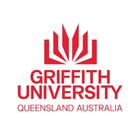Bachelor of Environmental Science
- Posted by Griffith University
- Home
- Courses
- Griffith University
- Bachelor of Environmental Science
Bachelor of Environmental Science
You will gain knowledge and skills from across the broad environmental science spectrum, exploring environmental issues from social, physical and biological perspectives. On completion of core science courses in your first year of study, you will choose a major that suits your interests and career plans. The final year includes…
Categories
COURSE DESCRIPTION
You will gain knowledge and skills from across the broad environmental science spectrum, exploring environmental issues from social, physical and biological perspectives. On completion of core science courses in your first year of study, you will choose a major that suits your interests and career plans. The final year includes a {DQ}capstone{DQ} experience where you have the option to undertake a research project or participate in industry internships to gain employment-relevant experience. Combining a discipline specific major with a major in Environmental Management will equip you with the broad set of knowledge and skills needed to be an environmental science professional.
PROGRAM ACCREDITATION
The Bachelor of Environmental Science is accredited by the Environment Institute of Australia and New Zealand (EIANZ).
PROFESSIONAL RECOGNITION
Depending on your major, you will be eligible to join the following professional bodies:
- Australian Society for Limnology
- Australian Society of Plant Scientists
- Ecological Society of Australia
- River Basin Management Society
- Royal Australian Chemical Institute
- Soil Science Australia
MY CAREER OPPORTUNITIES
Graduates may find employment in the following areas:
- Ecology and Conservation: Environmental consultant, Wildlife biologist, Conservation ecologist.
- Environmental Management: Environment consultant, Environmental scientist, Environmental manager, General scientist.
- Soil and Water Science: Environmental chemist, Soil scientist, Catchment restoration and management officer.
- Urban Environments: Urban ecosystems are the largest growing environment on earth with a major in urban environments you will work with urban and regional councils dealing with urban specific issues such as pest animals and plants, urban storm water management or advising urban planners.
REQUIREMENTS
Standard academic entry to our undergraduate degrees requires completion of secondary school comparable to Australian Year 12 or equivalent academic achievement.
English language requirements apply to International applicants and other applicants whose previous study was undertaken in a language other than English. The minimum English language requirements for such applicants for entry to this program are as follows:
- A minimum overall band score of 6.5 on IELTS (Academic) with no sub-score of less than 6.0
- OR a minimum score of 575 on TOEFL
- OR an internet-based (iBT) TOEFL score of 79 (no sub-score less than 19)
- OR no score less than 3+ in each skill of the ISLPR (conducted by ISLPR Language Services only)
- OR a minimum overall score of 176 (no score less than 169) on C1 Advanced (formerly Cambridge Certificate in Advanced English) or C2 Proficiency (formerly Cambridge Certificate of Proficiency in English)
- OR an overall score of 58 in the Pearson Test of English (Academic) with no score less than 50.
EDUCATIONAL INSTITUTION
Griffith University is ranked in the top 2% of universities worldwide and strives to create a brighter future for all by prioritising innovation and social impact. We are committed to providing international students with quality education, guidance, and support. With Australia’s most awarded teachers, Griffith University offers a full suite of undergraduate, postgraduate and research degrees in areas including architecture, construction, and planning; business and government; criminology and law; education; engineering, IT and aviation; humanities, languages and social science; medicine, dentistry and health; music and performing arts; science and environment; visual and creative arts.
Griffith University is ranked in the top 2% of universities worldwide and strives to create a brighter future for all by prioritising innovation and social impact. We are committed to providing international students with quality education, guidance, and support.
With Australia’s most awarded teachers, Griffith University offers a full suite of undergraduate, postgraduate and research degrees in areas including architecture, construction, and planning; business and government; criminology and law; education; engineering, IT and aviation; humanities, languages and social science; medicine, dentistry and health; music and performing arts; science and environment; visual and creative arts.




